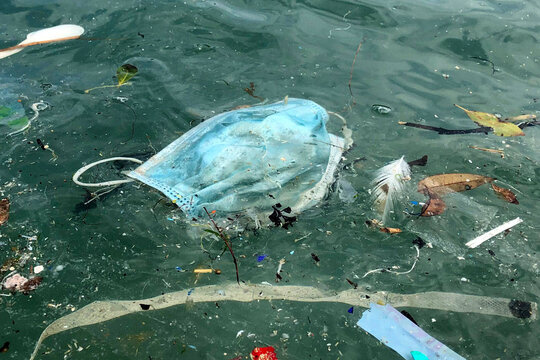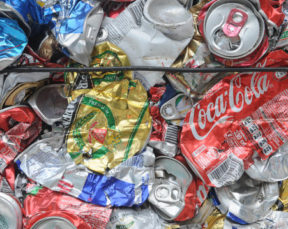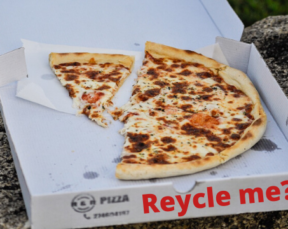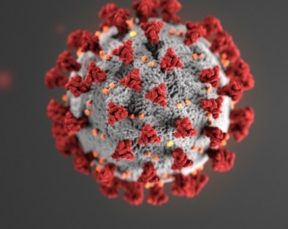By Hazel England, Director of Education & Outreach
As we all grappled individually with the far-reaching implications of COVID-19 throughout this year, we thought we would dive deeper into some of the impacts of the virus that relate to Great Swamp Watershed Association’s mission of protecting land and water quality, and some of the timely and interesting research that has been occurring on this front.
As we wrote about in a recent e-newsletter, epidemiologists spend much of their time trying to pinpoint exactly where cases of coronavirus are increasing. Looking at sewage might not first seem to be the place where coronavirus caseloads can best be established, but a recent waste-treatment plant coronavirus test being developed can pinpoint spikes in COVID-19 infection rates more than a week earlier than current medical tests. Scientists have long known that waste-water treatment plants allow them to study tangentially, everything that goes through us, and down our drains! This type of public health detective work has been used to determine potential painkiller addiction rates in communities by extrapolating types and amounts of painkillers appearing in wastewater. Similarly, it turns out that the coronavirus is shed in discernable amounts through human waste early in infection, often when patients are still asymptomatic. By ‘counting’ the amount of coronavirus genetic material in a known amount of wastewater from wastewater plants treating a known number of households, scientists can predict where cases will soon be surging. Knowing this information many days before residents are ill enough to visit their doctor or emergency room, and early in the infection cycle, may help authorities to intervene and reduce community spread of the virus. Do not worry unnecessarily though, wastewater treatment cleaning practices such as UV light Ozone treatments kill pathogens before effluent is released back to water bodies, so discharge is not a source of virus spread.
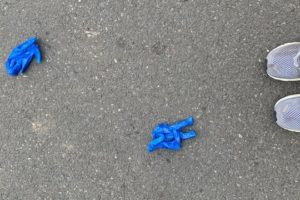

The single use plastic increase numbers worldwide are staggering. In Wuhan, China, where virus impacts were felt first, preliminary data suggests hospitals at the peak of the pandemic were creating 240 tons/day of single use plastic PPE waste compared with 40 tons on a typical day. Some predictions suggest the USA could generate a years’ worth of waste in just two months through the increase in plastic medical waste [world Economic Forum, Plastic Pandemic and COVID-19]. The Thai Environmental Institute suggests that 6,300 tons of plastic waste/day, up from 1,500 tons on a typical day has been produced due to home delivery of food during lockdown. And any walk around a supermarket parking lot turns up discarded disposable masks, wipes, and gloves, which during rainstorms make their way to storm drains and eventually to rivers and oceans. Indeed, researchers are already detailing PPE increases in trash sampling in coastal waters. It can feel as if we are facing a single use pandemic as well as a Coronavirus one, so what can the concerned homeowner do to make a difference, yet still stay safe? Even though it may feel as if taking actions are insignificant, it can be empowering to feel you can control your individual contribution to a problem. Here are some suggestions to safely move to reusables:
- Current science advice is that reusable cloth masks which can be washed and re-worn, effectively protect the general population well against virus spread and reduce plastic mask waste. GSWA has patterns to make your own mask on our website, or you can purchase masks which show off your personal style with baseball logos, slogans, and quirky designs.
- Disposable gloves for the public are not necessary or even CDC recommended in most cases, and frequent hand washing, and antibacterial use is often more effective in protecting you against virus transmission than glove wearing while out and about. Consider purchasing a reusable spray bottle and fill with alcohol and essential oils to use as an instant germ killer. Carry and use hand sanitizer and get into the habit of using them frequently, supplanting glove wearing with good hand hygiene, and saving the gloves for medical professionals.
- Disposable Lysol-type wipes are certainly handy, but both the plastic fibers they are made from and the containers they come in contribute to single use plastic pollution. Try cutting up a T-shirt from your COVID-19 lockdown closet purge into small squares, soak with disinfectant (62% alcohol solution or other disinfecting solution) and store in a Rubbermaid tub with a lid. Toss used wipes into a bin, leave until the bin fills, wash, and reuse. You can also use cheap face cloths to the same end.
- Consider taking a plastic bag and trash grabber (a long stick with a hooked nail at the end is a simple homemade version) with you on walks and pick up the PPE trash left by others. You can place trash directly into the bag, so there is no need to directly touch any of the waste. Since so many volunteering activities are still curtailed, you can feel good about doing your part to keep your local watershed and community safe from micro-plastics now and into the future by removing plastic waste before it reaches waterways.
